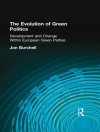The offshore areas of the Gulf of Mexico provide a setting for domestic and international energy production, U.S. military training and border operations, trade and commerce, fishing, tourist attractions, and recreation. These governmental, commercial, and cultural activities depend on healthy and productive marine and coastal areas for a range of economic and social benefits. Consequences of hurricanes and oil spills demonstrate that offshore areas in the Gulf of Mexico are governed by a number of interrelated legal regimes, including treaties and international, federal, and state laws. This book discusses the legislation proposal of implementing the U.S.-Mexico Transboundary Hydrocarbons Agreement. Another topic discussed in the book is the oil in Mexico in regards to the Transboundary Agreement. Mexican hydrocarbon resources belong to the Mexican people. Popular enthusiasm and national pride is attached to those resources, and many Mexicans directly depend on the existing oil industry for their livelihood and business interests. Crossing into the territory of energy sector reform requires political courage on behalf of Mexican politicians. The United States government emphatically recognizes the privileged position of oil in Mexico’s politics.
Hugh Bruner
U.S.-Mexico Transboundary Hydrocarbons Agreement [PDF ebook]
Considerations and Implementation Proposals
U.S.-Mexico Transboundary Hydrocarbons Agreement [PDF ebook]
Considerations and Implementation Proposals
Beli ebook ini dan dapatkan 1 lagi GRATIS!
Format PDF ● Halaman 113 ● ISBN 9781631173080 ● Editor Hugh Bruner ● Penerbit Nova Science Publishers ● Diterbitkan 2014 ● Diunduh 3 kali ● Mata uang EUR ● ID 7224178 ● Perlindungan salinan Adobe DRM
Membutuhkan pembaca ebook yang mampu DRM












